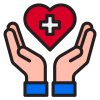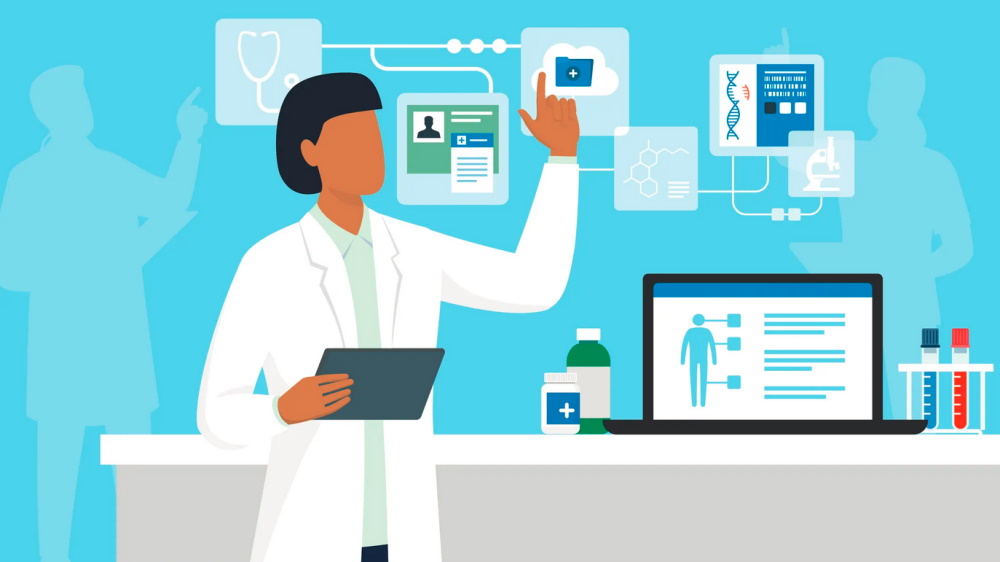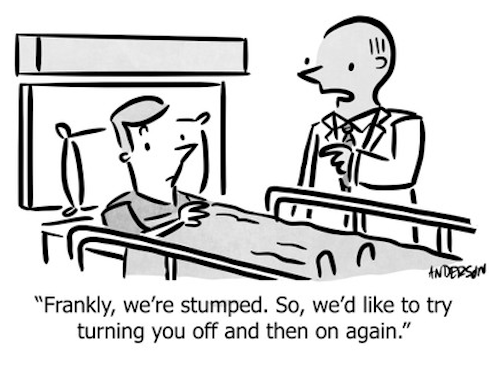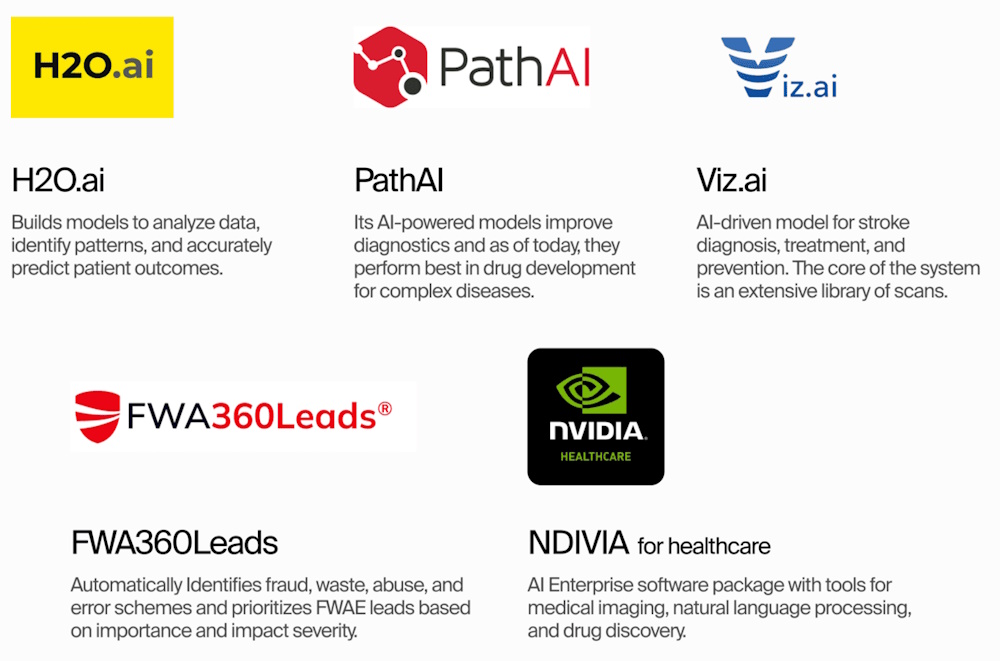 AI in Healthcare
AI in Healthcare
Includes AI-assisted image analysis for early detection, AI health services with personalized recommendations, AI simulations of biological processes for drug discovery, and more
Related: AI Industry | AI Companies | AI Stocks
Faced with an increasingly challenging regulatory landscape, most healthcare organizations start their AI projects by working to boost productivity and efficiency. Generative AI is an deal tool for assisting with routine tasks, such as appointment scheduling or processing patient intake forms, creating many opportunities to reduce the administrative workloads on clinicians.

 Benefits of AI in Healthcare
Benefits of AI in Healthcare
- Data Analysis: AI processes large datasets from electronic health records (EHRs), providing insights that are difficult to achieve manually.
- Imaging: Advanced AI tools enhance the interpretation of medical images, aiding radiologists in identifying abnormalities.
- Predictive Analytics: Predictive models forecast disease progression, helping in preventive care and better resource allocation.
- Clinical Decision Support: AI systems provide evidence-based recommendations, supporting clinicians in making more informed decisions.

AI agents are being used by healthcare providers and health plans to assist with key administrative tasks, such as nurse handoffs, and generating easy-to-understand explanations and communications, ultimately freeing up staff for patient care and other higher-value activities.
The biggest uses among healthcare organizations are those that accelerate clinical operations. For instance, Generative AI is being used to streamline back-office tasks, including clinical documentation, member and provider communications, and claims processing. AI agents can provide 24/7 support to respond to coverage queries, eligibility questions or claim statuses. Healthcare providers are nvesting heavily in AI tools to generate more targeted, personalized marketing outreach, from straightforward explanations and visuals for medical jargon to coding terminology used in health insurance plans.

Healthcare AI Software Tools
Some top examples include using AI to enhance access to healthcare, reimagine screening and early detection by AI-assisted image analysis in specialties like radiology and enable new innovations like AI health concierges that can offer personalized health recommendations, multilingual support, medication reminders, and care navigation advice. There's also an increasing number of AI models emerging that simulate biological processes to aid in discovering new drugs or repurposing existing ones.
The ultimate vision of AI in healthcare is to empower individuals to take control of their own health, moving beyond simply treating diseases to actively preventing them. AI can sift through massive datasets of patient records, clinical trials, genetic information, and more to identify patterns and predict disease risk with precision. This leads to earlier interventions, more effective treatments, and the development of new therapies targeted to an individual's specific needs.
 Challenges of AI in Healthcare
Challenges of AI in Healthcare
- Integration: Integrating AI systems with existing healthcare infrastructure requires significant investment and training.
- Data Privacy: Ensuring the security of sensitive patient data is paramount.
- Regulation: Developing appropriate regulatory frameworks to oversee AI applications in medicine is essential.
The adoption of multimodal AI models to analyze data such as medical records, imaging data, and genomic information to draw insightful summaries moves us closer to truly personalized medicine. This convergence of data analysis and AI is key to unlocking a deeper understanding of individual health, paving the way for personalized healthcare in society.
 News
News
med.stanford.edu/news/all-news/2024/04/ai-skin-diagnosis.html
newsroom.uvahealth.com/2024/11/13/does-ai-improve-doctors-diagnoses-study-finds-out
 Links
Links
AI in Health: A Leader's Guide to Winning in the New Age of Intelligent Health Systems
foreseemed.com/artificial-intelligence-in-healthcare
empeek.com/insights/top-ai-applications-in-healthcare/
mgma.com/articles/artificial-intelligence-in-diagnosing-medical-conditions-and-impact-on-healthcare
lapu.edu/ai-health-care-industry
builtin.com/artificial-intelligence/artificial-intelligence-healthcare
acropolium.com/blog/ai-in-healthcare-examples-use-cases-and-benefits